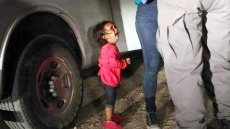Sri Lanka on Thursday suspended its plans to grant visas on arrival to citizens of 39 countries after the devastating Easter suicide bombings that killed nearly 360 people.
"Although arrangements were in place to issue visas on arrival for citizens of 39 countries, we have now decided to hold it for the time being in consideration of the current security situation," Tourism Minister John Amaratunga said in a statement.
"Investigations have revealed foreign links to the attacks and we don't want this facility to be abused," Mr Amaratunga added. The visas on arrival pilot programme was part of a larger initiative to increase tourist arrivals to the country during the six-month off-season period from May to October.
The island nation received 7,40,600 foreign tourists in the first three months of 2019. Around 450,000 Indians visited Sri Lanka last year and the island nation was expecting the total Indian tourist arrivals to cross one million mark in 2019.
Sri Lanka's tourism industry, which accounts for around five per cent of the country's GDP, is likely to suffer due to the Easter blasts. Tourism revenues in Lanka increased to $362.7 million in November from $284 million in October 2018, according to reports.
Meanwhile, the Lankan authorities Thursday intensified their raids with the help of the army and arrested 16 more suspects in connection with the country's worst terror attack that killed 359 people and left over 500 injured.
President Maithripala Sirisena has said that 139 people have been identified as suspects in connection with the attacks.
Addressing an all-party conference at the Presidential Secretariat here, Mr Sirisena said that a Combine Operation Centre will be established within the defence ministry for the enforcement of the country's security measures from Friday.
Police spokesman Ruwan Gunasekera said that the police had searched several houses connected with the terrorist group which carried out the Easter blasts.



